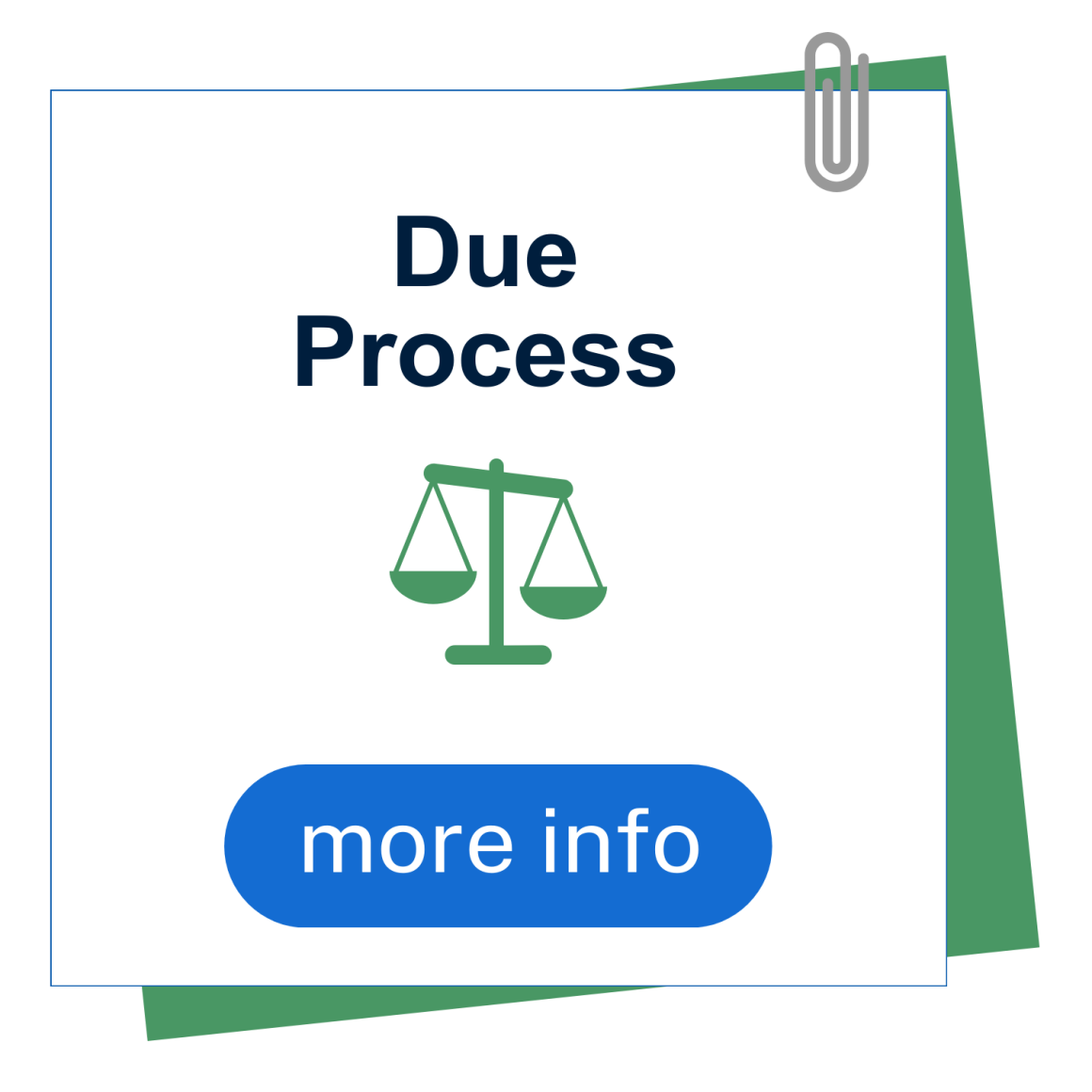
Defending Maine’s Civil Liberties in Six Key Priority Areas
The legislative session has officially wrapped up. It unfolded against a backdrop of growing political instability and a shifting legal landscape. This presented critical opportunities for Maine lawmakers to push back against the federal government’s attempts to disrupt our legal system and roll back our rights.
This year, the ACLU of Maine focused on six key priority issues. Click on an issue below to skip ahead.
 |
 |
 |
 |
 |
 |
Our policy team spent hundreds of hours at the State House. They testified on legislation, met with lawmakers, and built coalitions with partner organizations. Our legal team helped analyze bills and consider how they fit with our core constitutional commitments. The communications, engagement, and development teams kept the public and our members informed, worked with journalists, developed key messages, and engaged Mainers who sent over 10,500 messages to lawmakers.
This report covers our successes, ongoing challenges, and future plans to protect and expand civil rights and liberties in Maine.
The rights to a fair, speedy, and public trial are among the most important guaranteed by the U.S. and Maine Constitutions. They ensure the state cannot target people, maintains trust in the legal system, and provide justice.
However, Maine has failed to meet its obligations to provide fair and speedy trials for decades. In tandem with our legal work, we sought to enshrine the rights to counsel and a speedy in state law.
LD 1101 and the Right to Counsel:
The U.S. Constitution guarantees that anyone accused of a crime will get a lawyer if they cannot afford one. But for years, Maine has not done this. Following the landmark victory in our class action lawsuit on this issue, the legislature passed LD 1101. It establishes several new public defender positions and appropriates over $3 million to strengthen public defense. Our lawsuit is still active, and we will continue pursuing further legal and legislative solutions until this constitutional crisis is fully resolved. The Sixth Amendment right to counsel is a guarantee for all – not a privilege for the wealthy.
POSITION: Support
STATUS: Victory! Passed and signed into law by the governor
LD 340: Enforcing the Right to a Speedy Trial
The right to a speedy trial is critical to a fair legal process. However, Maine remains one of only seven states without a law to enforce this. LD 340 would create clear timelines for criminal trials and enforce accountability for delays. When the state chooses to charge a person with a crime, it is the state’s responsibility to ensure a fair and speedy process.
POSITION: Support
STATUS: In Progress. The bill passed initial votes in both chambers, but received a $3.4 million fiscal note and will be carried over to the next session. We’ll continue to advocate for this bill in between sessions.
For years, the ACLU of Maine has worked to increase people's control over their personal information by limiting government and corporate overreach into our private lives.
We’ve already helped write and pass the nation’s strongest internet service provider privacy law, the nation’s strongest ban on government use of facial recognition surveillance, and strong restrictions on the government’s ability to use cellphone location information to track people. Here’s what we worked on this session to keep building on that progress:
LDs 1088 and 1284: Bad Bills to Upend Maine’s Internet Privacy Law
These bills were written by Big Tech for Big Tech. They would allow excessive and invasive data collection by upending existing protections. For years, tech companies have tried to pass these laws in Maine, and for years, we’ve pushed back. Once again, the voice of Mainers -- who sent over 6,000 messages to lawmakers asking them to strengthen Maine privacy laws -- were heard loud and clear.
POSITION: Oppose
STATUS: Victory! Both bills were defeated.
LD 1822: Common Sense Data Privacy Protections
LD 1822 is our strongest data privacy bill to date. Corporations have created a surveillance-driven economy. They harvest people’s most sensitive data and sell it – often without consent – to unknown entities, including the government. LD 1822 would ensure companies collect only the data necessary to provide a good or service – no more. No company’s business plan should depend on invading customers’ privacy or selling vast amounts of their personal data. The bill would also strengthen:
- Fourth Amendment Protections Against Government Surveillance: In most cases, the Fourth Amendment requires the government to get a warrant from a judge to track or search you. But government officials have been able to circumvent this protection by buying or subpoenaing sensitive personal data directly from tech companies. LD 1822 would reduce the vast amounts of data about Mainers available for purchase by the government.
- Personal Data Privacy: LD 1822 would help protect sensitive reproductive health data from out-of-state actors seeking to prosecute legal health care services in Maine. Anti-abortion politicians have proven they won’t stop at their own state lines in their attempts to ban abortion nationwide.
POSITION: Support
STATUS: In Progress. LD 1822 will be carried over to the next legislative session. We look forward to continuing to fight for the passage of this important privacy bill.
The president is carrying out a mass deportation agenda in ways that violate due process rights of immigrants, refugees, asylum seekers, and U.S. citizens. When due process is undermined for some, these most basic rights can be undermined for all.
In Maine, “ICE detainers” are raising significant constitutional concerns. Detainers are a way for ICE to indefinitely keep people in local jails with no judicial oversight. Detainers are not supported by probable cause, there is often no notice provided before they are issued, and there are few ways people can challenge extended detention.
In the legislature, we worked with our coalition partners to pass bills that strengthen due process rights for immigrants. These bills would also ensure that our state and local resources are not used to violate people’s due process rights.
LD 1971: Ensuring Due Process for Immigrant Communities
LD 1971 would limit Maine law enforcement’s participation in federal enforcement practices that often violate constitutional rights by keeping them from:
- Detaining or arresting people solely for immigration purposes.
- Conducting immigration interviews without informing detained people of their rights.
- Acting as federal immigration enforcement officers.
POSITION: Support
STATUS: Passed, awaiting action. The bill passed in the House and Senate, but the governor stated she would delay her decision about whether to veto the bill until next legislative session. The bill will become law if not vetoed in the first three days of the next session.
LD 1259: Restricting 287(g) Agreements:
LD 1259 would prohibit Maine law enforcement from entering into agreements with ICE. These agreements deputize state and local law enforcement to carry out federal immigration enforcement, which often violates people’s civil rights – while Maine taxpayers foot the bill and take on the legal liability of officers breaking the law. Washington, Oregon, California, Illinois, New Jersey, Vermont, and Connecticut have all passed laws banning these agreements.
POSITION: Support
STATUS: In Progress. This bill will be carried over to the next legislative session
LD 1656: Forced Cooperation with Federal Immigration Authorities
LD 1656 would have required state cooperation with federal immigration enforcement.
POSITION: Oppose
STATUS: Victory! LD 1656 was defeated with bipartisan support.
The rights to privacy and bodily autonomy are at the core of abortion access. Privacy and bodily autonomy connect several issues, from abortion and contraception to gender-affirming care and marriage equality. These rights and freedoms allow us to determine our own paths and thrive on our terms.
Since the Supreme Court overruled Roe v. Wade in 2022, attacks on bodily autonomy have increased across the nation, including here in Maine. This includes efforts to limit abortion and miscarriage care, as well as access to contraception and gender-affirming health care. The ACLU of Maine, along with our coalition partners, worked hard to defeat every single anti-abortion bill and support legislation to expand access to reproductive health care.
Stopping Attacks on Abortion Access:
We helped to defeat all eight anti-abortion bills. They included total bans that would have criminalized care, restrictions on MaineCare (Medicaid) coverage, bans on medication abortion, forced waiting periods, and requirements for health care providers to spread misinformation.
POSITION: Opposed LDs 253, 682, 886, 887, 975, 1007, 1154, 1930
STATUS: Victory! All eight bills were defeated.
Protecting and Expanding Reproductive Health Care:
- LD 538 to create prescription label privacy: This new law will allow providers to remove their names from medication labels, protecting them from out-of-state prosecution.
- LD 163 to expand access to contraception: This new law will expand insurance coverage to over-the-counter birth control, increasing access without a prescription.
POSITION: Support LDs 538 and 163
STATUS: Victory! Both bills were passed and signed into law.
Protecting Trans Rights
The Maine Human Rights Act (MHRA) was adopted in 1971 and expanded in 2005 to include gender identity and gender expression under the definition of sexual orientation. Following that change, there was a “people’s veto” campaign to reverse it. When the issue went to voters, Maine’s people chose to keep the nondiscrimination law in place by a margin of over 20 points (~40,000 votes). Mainers time and time again have affirmed that everyone deserves to live freely, with dignity and equal protection under the law.
Despite the clear commitment of Maine’s leaders and its voters, some lawmakers still brought legislation to undermine trans rights. The bills ranged from the “bathroom bans” of 10 years ago to restrictions on gender-affirming care. Working other LGBTQ rights advocates, we defeated eight anti-trans bills, including:
- LD 1432: Repealing gender identity protections in the Maine Human Rights Act
- LD 1002: Banning preferred name use in schools, including simple nicknames like being called “John” instead of “Jonathan”
- LD 380: Restricting gender-affirming care
- LD 868 and 1134: Requiring trans students to use the bathroom aligned with their sex assigned at birth and banning trans girls from school sports
- LD 1704: Requiring trans students to use the bathroom aligned with their sex assigned at birth
- LD 233: Banning trans girls from school sports
- LD 1337: Banning trans girls from school sports and trans women from single-sex shelters for people experiencing domestic violence and/or homelessness
POSITION: Oppose LDs 1432, 1002, 380, 868, 1134, 1704, 233, 1337
STATUS: Victory! All eight bills were defeated. Some passed by as little as one vote in the House and were then defeated in the Senate.
Gender affirming care remains legal in Maine, and trans students and athletes are still protected by the Maine Human Rights Act. Learn more about your rights from GLAD Law here.
Our work to protect and expand First Amendment freedoms – whether online or in the classroom – continues to face challenges in the Maine Legislature. These efforts mirror a troubling national trend of attempts to restrict free speech and limit educators’ ability to teach diverse ideas and perspectives in the classroom.
LD 660: Classroom Censorship
This bill would restrict public school curricula, in line with national efforts to allow parents to exert control over their public education system.
POSITION: Oppose
STATUS: Victory! This bill was defeated.
LDs 884 and 1873: Online Censorship
Both bills would have required age verification for accessing social media and “obscene” online content. Adults in America have a First Amendment right to read about sexual health, see R-rated movies, watch porn, and otherwise access information about sex if they want to. They should be allowed to exercise that right as they see fit, without having to worry about exposing their personal identifying information in the process. Rather than requiring adults to give up their privacy in order to watch and read content the government doesn’t like, legislators should focus on shaping a safer internet through things like voluntary content filters, which give control to people, not the government.
POSITION: Oppose
STATUS: Victory! These bills were defeated.
Ongoing attempts to undermine Maine’s safe and secure elections made their way into the legislative session.
Lawmakers faced a wave of bills aimed at restricting access to the ballot box. These proposals included implementing voter ID laws, ending the ongoing absentee voting program, withdrawing from the National Popular Vote compact, and requiring proof of citizenship to vote. In a strong show of support for voting rights, legislators rejected every one of these efforts.
Looking ahead: Voter ID for ME
In November 2025, Mainers will vote on a ballot question known as “Voter ID for ME.” Despite its name, the initiative extends far beyond voter identification, with numerous provisions that would severely restrict Mainers’ access to the ballot box. The ACLU of Maine has joined with partners across the state to form the Save Maine Absentee Voting coalition to defeat this dangerous referendum question. Learn more here and vote NO.
What's Next?
The Maine State Legislature operates on a biennial schedule, meaning the legislative process is divided into two regular sessions during each two-year cycle. The 132nd Legislature started in December 2024 and will end in 2026. The two-year cycle begins when the legislature convenes at the start of an odd-numbered year. The legislative session that occurs during the odd-numbered year is called the First Regular Session. The legislative session that happens in the second year is called the Second Regular Session.
Bills that are not defeated or passed in the first session are most often "carried over" to the next. We will continue working with lawmakers on our priorities that will be carried into the next session.
A new legislature convenes after each election cycle. All Maine representatives and senators are up for election every two years. At the end of the two-year cycle, the legislature is finished. After the second session next year, the 132nd Legislature will conclude. The 133rd Legislature will convene after the 2026 elections.






